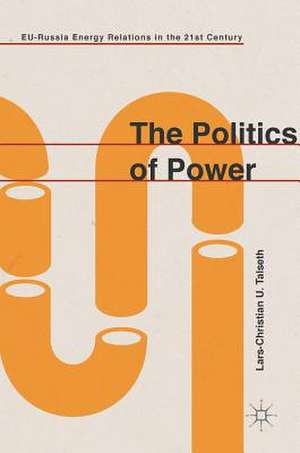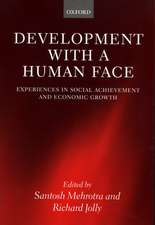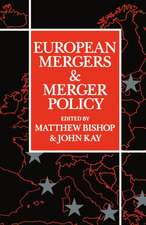The Politics of Power: EU-Russia Energy Relations in the 21st Century
Autor Lars-Christian U. Talsethen Limba Engleză Hardback – feb 2017
| Toate formatele și edițiile | Preț | Express |
|---|---|---|
| Paperback (1) | 583.28 lei 6-8 săpt. | |
| Springer International Publishing – 17 iul 2018 | 583.28 lei 6-8 săpt. | |
| Hardback (1) | 588.04 lei 6-8 săpt. | |
| Springer International Publishing – feb 2017 | 588.04 lei 6-8 săpt. |
Preț: 588.04 lei
Preț vechi: 691.81 lei
-15% Nou
Puncte Express: 882
Preț estimativ în valută:
112.54€ • 116.26$ • 93.66£
112.54€ • 116.26$ • 93.66£
Carte tipărită la comandă
Livrare economică 25 martie-08 aprilie
Preluare comenzi: 021 569.72.76
Specificații
ISBN-13: 9783319331256
ISBN-10: 3319331256
Pagini: 341
Ilustrații: XIV, 321 p. 22 illus., 6 illus. in color.
Dimensiuni: 148 x 210 x 24 mm
Greutate: 0.53 kg
Ediția:1st ed. 2017
Editura: Springer International Publishing
Colecția Palgrave Macmillan
Locul publicării:Cham, Switzerland
ISBN-10: 3319331256
Pagini: 341
Ilustrații: XIV, 321 p. 22 illus., 6 illus. in color.
Dimensiuni: 148 x 210 x 24 mm
Greutate: 0.53 kg
Ediția:1st ed. 2017
Editura: Springer International Publishing
Colecția Palgrave Macmillan
Locul publicării:Cham, Switzerland
Cuprins
- Chapter 1: The Narrative Dialogue.- Chapter 2: The Political Dialogue.- Chapter 3: The Business Dialogue.- Chapter 4: The Geo-Economic Dialogue.- Chapter 5: The Legal Dialogue.- Chapter 6: Conclusions: The Politics of Power.
Notă biografică
Lars-Christian U. Talseth is a researcher and journalist who has written and published extensively about Russia, Europe and energy. He received his DPhil from the University of Oxford, UK, and has worked for leading think tanks in Russia, Germany, Belgium and Norway.
Textul de pe ultima copertă
This book sheds new light on the complex EU-Russia relationship, by providing a comprehensive account of the EU-Russia Energy dialogue. The author examines why Moscow and Brussels have failed to cooperate in this crucial area of interdependence. By invoking constructivism and Mikhail Bakhtin’s concept of dialogue, and drawing on dozens of interviews with Russian and European officials, Talseth argues that the Energy Dialogue was unsuccessful because its interlocutors failed to come up with a common narrative for cooperation. Evidence suggests that the collapse of the Energy Dialogue was not pre-determined and initially there was a great deal of optimism and goodwill. Ultimately, the outcome of the Energy Dialogue was shaped by the unfolding time-space of Russo-European relations.
An invaluable reference for students and researchers interested in Russo-European politics, Russo-European energy politics, and energy politics in general. This book will alsobe of interest to International Relations-scholars focusing on theory and methodology, particularly constructivist research.
Caracteristici
Provides comprehensive coverage of the EU-Russia Energy dialogue Uses dialogue as a framework to understand and explain the failure of EU-Russia cooperation. Focuses on process and time-space in a constructivist argument Based on 100 interviews and archival research

















